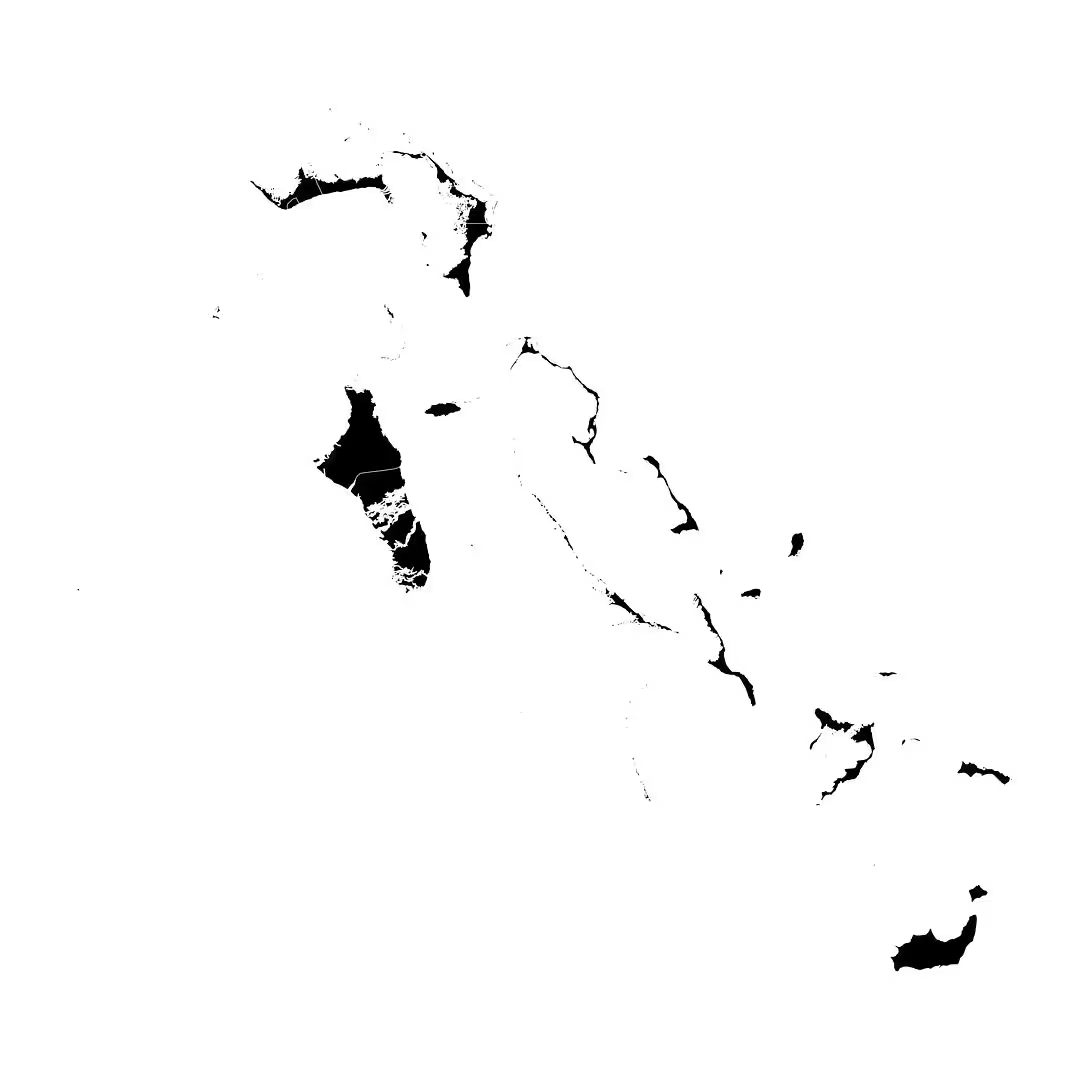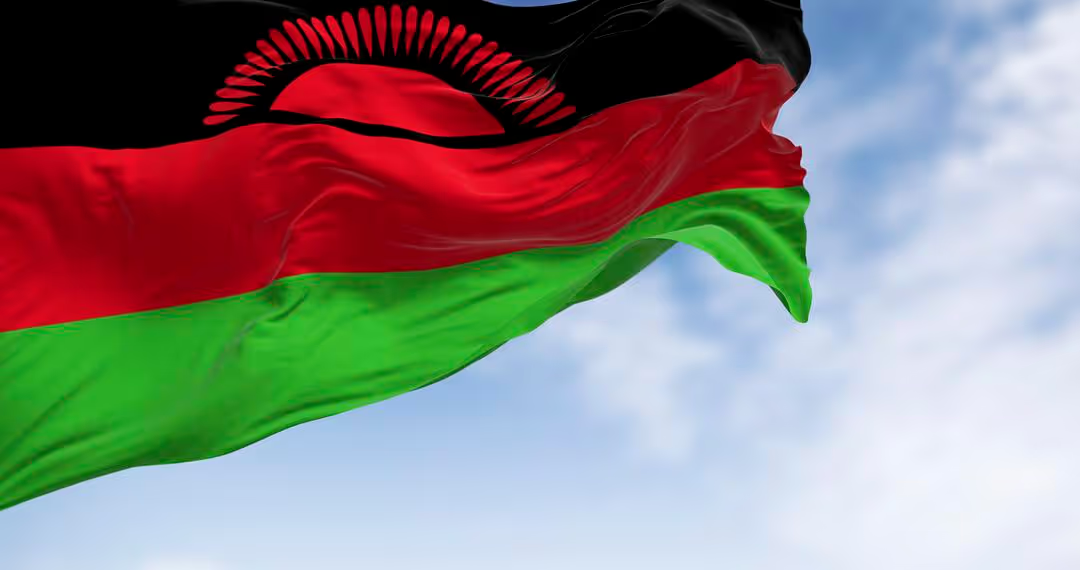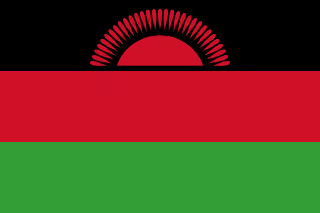

Employer of Record Guide in Bahamas
The Bahamas offers a unique hiring landscape with zero income tax and a growing tech sector, but navigating work permits and local employment laws requires careful attention. Our comprehensive guide helps you hire compliantly while tapping into this Caribbean talent hub's emerging opportunities.
Capital City
Currency
Languages
Population size
Services available in this country:

Key stats and facts
With Nassau and Freeport leading economic growth and a GDP per capita of nearly $40K, the Bahamas is attracting global businesses seeking skilled professionals in data science, AI, and cybersecurity. The country's tax-free environment and English-speaking workforce make it an increasingly attractive destination for international expansion.
Major economic hubs
Skills in demand
Currency
Language
GDP per Capita
Standard Tax Rate
Your EOR guide in Bahamas
Understanding Bahamian employment fundamentals—from sector-specific minimum wages to NIB contributions—is essential for compliant hiring. This guide breaks down the practical details you need to structure compensation, manage payroll cycles, and navigate the country's unique zero-income-tax system.
Minimum Wage
The Bahamas has established minimum wage rates that vary by sector and worker category.
| Worker Category | Minimum Wage (BSD/hour) | Effective Date |
|---|---|---|
| General Workers | $5.25 | Current |
| Hotel/Tourism Workers | $4.00 | Current |
| Domestic Workers | $150.00/week | Current |
Note: Minimum wage rates are subject to periodic review by the Bahamian government.
Payroll Cycle
- Bi-weekly: 26 pay periods per year (common practice)
- Monthly: 12 pay periods per year
- Weekly: 52 pay periods per year (less common)
Note: Employers must ensure consistent pay schedules and comply with the Employment Act requirements.
Individual Income Tax
The Bahamas operates a unique tax system with no personal income tax on employment income.
| Income Type | Tax Rate |
|---|---|
| Employment Income | 0% |
| Business Income | 0% |
| Capital Gains | 0% |
Note: While there is no income tax, employees and employers must contribute to the National Insurance Board (NIB).
Tax Residency Criteria
The Bahamas does not impose income tax on residents or non-residents for employment income. However, individuals must still comply with NIB contribution requirements if working in the Bahamas.
Employer Payroll Contributions
Employers in the Bahamas are required to make contributions to the National Insurance Board (NIB) and other statutory programs.
| Contribution Type | Employer Rate | Employee Rate | Total Rate |
|---|---|---|---|
| National Insurance (NIB) | 5.9% | 3.9% | 9.8% |
| Workers' Compensation | Varies by industry | N/A | 0.5% - 2.0% |
| Estimated Total Employer Cost | ~6% - 8% | 3.9% | ~10% - 12% |
Note: NIB contributions are calculated on weekly insurable earnings up to a maximum ceiling.
Working Hours
The standard work schedule in the Bahamas is 8 hours per day, 40 hours per week, Monday through Friday.
Certain categories of employees—such as senior managers, security personnel, and hospitality workers—may have different working hour arrangements based on industry requirements.
Note: The tourism and hospitality sectors may have specific working hour regulations due to the nature of the business.
Overtime Pay
- Overtime is paid at 1.5× the employee's regular hourly rate for hours worked beyond 40 hours per week
- Daily Overtime: Some sectors may require overtime pay for work beyond 8 hours per day
- Calculation: Overtime pay is calculated on the base wage and may include certain allowances
- Maximum Hours: Generally limited to prevent employee fatigue and ensure workplace safety
Bonus Payments
Bonuses are not legally mandated but are common in many sectors, particularly tourism and financial services. When promised contractually or paid regularly, bonuses may become an implied entitlement affecting termination calculations.
Full-Time vs. Part-Time
- Full-time: Employees working 35 hours or more per week
- Part-time: Employees working fewer than 35 hours per week
Vacation Leave
- Standard Entitlement: Minimum 2 weeks of paid vacation after 12 months of continuous employment
- After 5 Years: Increases to 3 weeks in many cases
- Vacation Pay: Typically calculated as a percentage of annual earnings
- Payout Rules: Must be paid out on termination if unused
Sick Leave
- Standard Provision: Varies by employer policy, typically 5-10 days annually
- Medical Certification: Required for extended sick leave periods
- Paid vs Unpaid: Often a combination, with initial days paid and extended periods unpaid
Note: Sick leave provisions are largely determined by employment contracts and company policies.
Maternity Leave
- Length: Up to 13 weeks (8 weeks paid through NIB, additional weeks may be unpaid)
- Eligibility: Must have sufficient NIB contributions
- Job Protection: Employers must guarantee position upon return
- Pay Rate: Approximately 60% of average weekly earnings through NIB
Parental Leave
- Paternity Leave: Limited provisions, typically 1-2 weeks
- Adoption Leave: May be available through employer policies
- Shared Leave: Not commonly structured in Bahamian law
Bereavement Leave
- Duration: Typically 3-5 days for immediate family members
- Paid Status: Often paid for immediate family, unpaid for extended family
- Qualifying Events: Death of spouse, children, parents, siblings
Personal & Family Leave
- Family Responsibilities: Limited statutory provisions
- Emergency Leave: Available for urgent family matters
- Compassionate Leave: May be granted at employer discretion
Summary
| Leave Type | Duration | Paid? | Funding |
|---|---|---|---|
| Vacation | 2-3 weeks/year | Yes | Employer |
| Sick Leave | 5-10 days/year | Partially | Employer |
| Maternity Leave | 13 weeks | Partially | NIB/Employer |
| Paternity Leave | 1-2 weeks | Varies | Employer |
| Bereavement | 3-5 days | Yes | Employer |
Termination Types
Termination With Cause:
- No notice or severance required
- Must involve serious misconduct (theft, fraud, gross negligence)
- Burden of proof rests with the employer
Termination Without Cause:
- Permitted under Bahamian employment law
- Requires appropriate notice or payment in lieu
Notice Period Requirements
Notice periods are based on length of service and position level.
| Length of Employment | Minimum Notice Period |
|---|---|
| Less than 6 months | 1 week |
| 6 months - 2 years | 2 weeks |
| 2 - 5 years | 4 weeks |
| 5 - 10 years | 6 weeks |
| Over 10 years | 8 weeks |
Severance Pay
Severance pay requirements depend on circumstances of termination and length of service.
- Redundancy: May require severance payment
- Long Service: Additional compensation for lengthy employment
- Calculation: Typically based on length of service and weekly wages
Probationary Periods
- Standard Period: Up to 6 months for most positions
- Extended Period: Up to 12 months for senior roles
- Termination Rights: Reduced notice requirements during probation
Final Pay Requirements
- Timeline: Final pay must be issued within 7 days of termination
- Components: Base salary, accrued vacation, overtime, and other earned benefits
- Deductions: Only legally permitted deductions may be made
Anti-Discrimination & Retaliation Laws
Employees cannot be terminated for reasons related to:
- Pregnancy or maternity leave
- Filing complaints with labour authorities
- Union activities
- Protected characteristics under employment law
National (Public) Holidays
| Holiday | Date (2025) |
|---|---|
| New Year's Day | January 1 |
| Good Friday | April 18 |
| Easter Monday | April 21 |
| Whit Monday | June 9 |
| Labour Day | June 6 |
| Independence Day | July 10 |
| Emancipation Day | August 4 |
| Discovery Day | October 13 |
| Christmas Day | December 25 |
| Boxing Day | December 26 |
Holiday Pay Eligibility
To qualify for public holiday pay, employees must:
- Have worked the scheduled day before and after the holiday
- Be employed for at least 30 days prior to the holiday
- Not be absent without permission
Working on a Public Holiday
If an employee works on a public holiday:
- They receive double time (2× normal rate) plus a substitute day off
- Alternative arrangements may be made by mutual agreement
Religious Observances
- Employers should reasonably accommodate religious observances
- Time off may be unpaid unless covered by vacation entitlement
- Advance notice is typically required
Required Documents for Employment
- Employment Contract: Must include job title, duties, salary, working hours, benefits, termination clauses
- Work Permit: Required for non-Bahamian nationals
- Government Forms:
- NIB registration forms
- Tax compliance certificate (for businesses)
- Banking Information: For direct deposit setup
- Identification: Valid passport or national ID
Work Authorization Requirements
- Bahamian Citizens: No work authorization required
- Permanent Residents: May work without restrictions
- Foreign Nationals: Must obtain work permit before commencing employment
- Permit Categories: Various categories based on skill level and industry
Background Checks & References
- Employment Verification: Standard practice for most positions
- Criminal Background: Required for certain sectors (banking, security)
- Educational Verification: Common for professional roles
- Consent Required: Written consent must be obtained from candidates
Data Protection & Privacy
- Employers must protect employee personal information
- Consent required for data collection and processing
- International data transfers may require additional safeguards
- Employee access rights to personal data must be respected
IP Assignment & Confidentiality
- Work Product: Generally belongs to employer unless otherwise specified
- Confidentiality Agreements: Common and enforceable
- Non-Compete Clauses: Limited enforceability, must be reasonable in scope
Probation Period Setup
- Clearly defined in employment contract
- Performance expectations and review schedule
- Termination procedures during probation
- Extension possibilities if needed
Onboarding Timeline
| Step | Timeline |
|---|---|
| Job offer accepted | Day 0 |
| Work permit application (if needed) | Day 1-30 |
| Employment contract signed | Day 30-35 |
| NIB registration completed | Day 35-40 |
| Onboarding and training | Day 40-45 |
| Payroll setup finalized | Day 45-50 |
Worker Classification: Employee vs. Contractor
Proper classification is essential to avoid legal and financial penalties.
- Employees: Work under employer control, receive benefits, covered by employment law
- Contractors: Operate independently, invoice for services, responsible for own taxes and NIB
- Classification Tests: Based on control, economic reality, and integration into business
Note: Misclassification can result in penalties, back payments, and loss of legal protections.
Unionization & Collective Agreements
- Right to Organize: Protected under Bahamian law
- Key Sectors: Strong union presence in tourism, utilities, and public sector
- Collective Bargaining: Common in unionized workplaces
- Strike Rights: Regulated process for work stoppages
Cultural Norms & Workplace Expectations
Bahamian workplace culture emphasizes:
- Relationship Building: Personal connections are important
- Respect and Courtesy: Formal communication styles preferred
- Work-Life Balance: Family and community obligations respected
- Punctuality: Expected in business settings
Remote Work Considerations
Remote work is increasingly accepted, particularly post-COVID:
- Equipment: Employer responsibility for necessary tools
- Work Hours: Must still comply with standard working time regulations
- Health and Safety: Employer obligations extend to home offices
- Cross-Border: Complex regulations for remote work across borders
Tourism Industry Considerations
Given the Bahamas' tourism-dependent economy:
- Seasonal Employment: Common in hospitality sector
- Gratuity Policies: Important consideration for service roles
- Customer Service Standards: High expectations in tourism-facing positions
- Language Requirements: English proficiency typically required
What the EOR Handles
Borderless AI manages:
- Employment contract compliance
- NIB registration and contributions
- Work permit coordination
- Payroll processing in BSD
- Local labour law compliance
- Cultural integration support
Built-in benefits packages for Bahamas
When the world is your competition, it pays to incentivize new hires and existing alike. Borderless AI benefits packages typically inlucde:

Medical Insurance

Dental Insurance

Retirement Contribution

Life Insurance

Vision Insurance
Explore other countries

Unlock global hiring potential
Simplify your payroll and hiring processes today.








